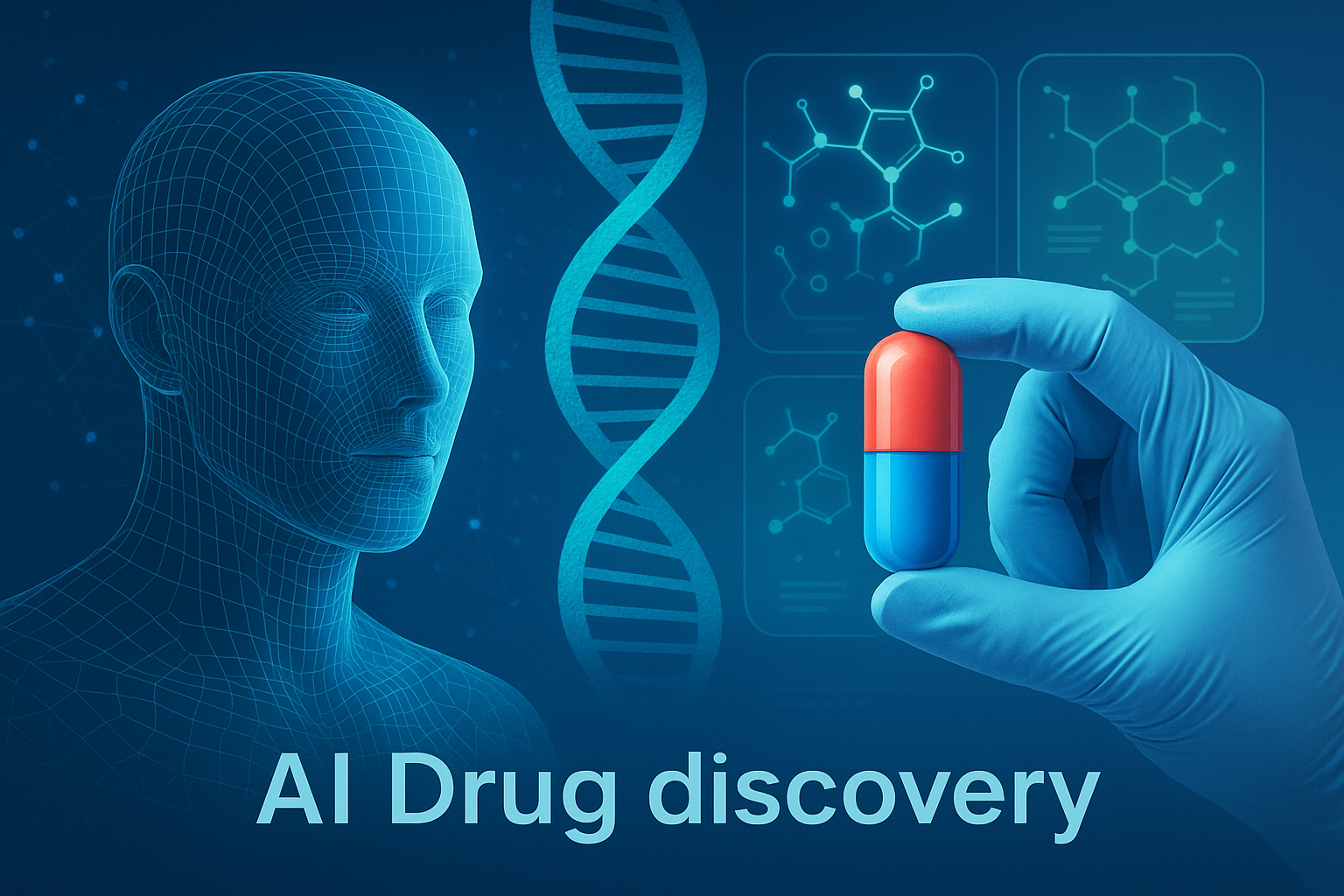
AI Drug Discovery: A New Era in Medical Innovation
AI drug discovery is rapidly changing how scientists identify and develop new medicines. Using deep learning and genomic data, researchers are now creating smarter, faster, and more precise systems for drug development. Instead of testing millions of chemical compounds manually, AI models can predict which molecules will have the desired biological effect — saving years of effort and billions in costs.
How Deep Learning Accelerates AI Drug Discovery
For decades, scientists relied on traditional drug screening methods — a slow process of testing thousands of compounds on lab-grown cells. These methods worked but demanded massive resources.
Recent breakthroughs in AI drug discovery have changed this equation. Deep learning models can now analyze how chemical compounds alter gene activity in human cells. By studying large-scale genomic datasets, these models identify patterns that reveal which compounds could lead to effective new drugs.
One promising example is a model known as DrugReflector. It was trained on the genomic effects of nearly 9,600 compounds across 50 different cell types. The model learned to predict which chemicals could stimulate the production of platelets and red blood cells — vital for treating various blood disorders.
When tested in real-world conditions, DrugReflector outperformed traditional screening methods by up to 17 times. When researchers updated the model with new data, its accuracy doubled — a clear sign that AI systems can “learn” and improve with experience.
Reducing Time, Cost, and Labor in Research
AI drug discovery dramatically reduces the resources needed to find effective treatments. Instead of screening millions of compounds, researchers can focus on a few hundred high-potential candidates.
This approach cuts laboratory workload, lowers research costs, and accelerates the journey from concept to clinical trial. Experts believe this could transform pharmaceutical research by enabling smaller labs and startups to compete with major drug companies.
The Promise and the Limitations of AI Drug Discovery
While AI drug discovery shows great promise, it still faces challenges. Current models depend on existing datasets and cannot yet create completely new molecules. Moreover, predicting how a compound behaves inside the human body remains complex.
Researchers envision a future where AI can predict the biological effects of a molecule directly from its chemical structure. Such a system could revolutionize not just medicine, but the entire landscape of biotechnology and genomics.
Despite these challenges, experts agree that the combination of AI, genomics, and cell biology is the most exciting frontier in medical innovation. With further refinement, these tools could personalize treatments, enhance safety, and drastically shorten the path from discovery to patient care.
A Smarter Future for Medicine
As AI drug discovery continues to evolve, it’s redefining what’s possible in healthcare. Machines no longer just process data — they now help scientists understand biology itself.
From cancer research to regenerative medicine, AI is giving researchers a powerful lens to see patterns invisible to the human eye.
The future of medicine may depend not only on chemistry but also on computation — where data, intelligence, and human creativity merge to create the next generation of life-saving therapies.
Also read: Fake Scientists in Academia, Spotting & Stopping Bogus Research.






